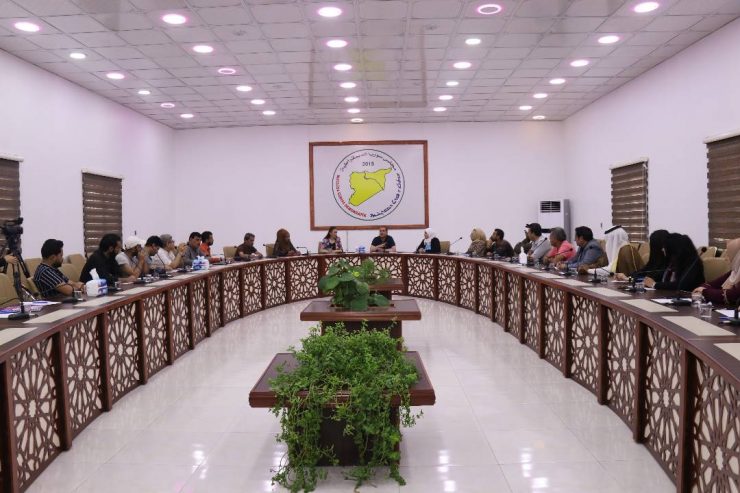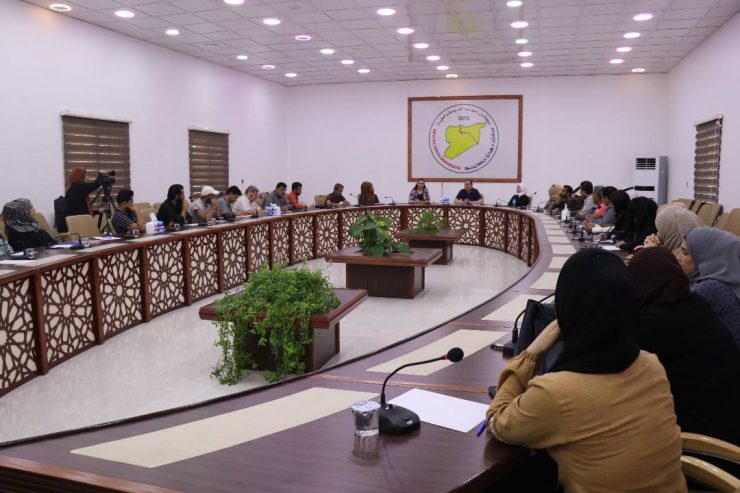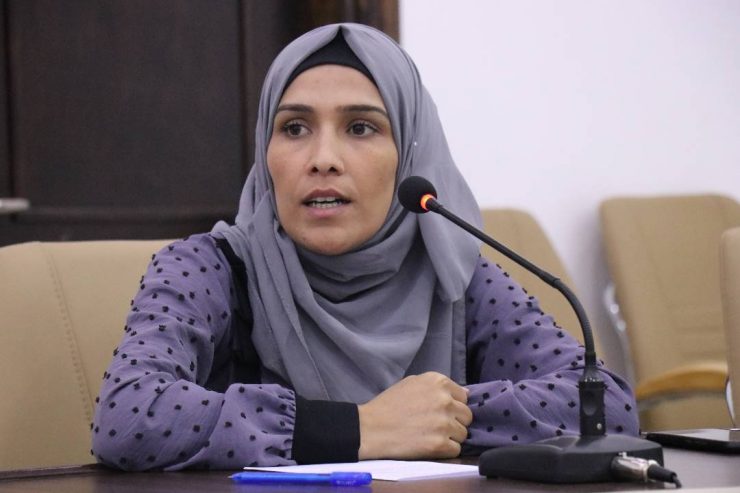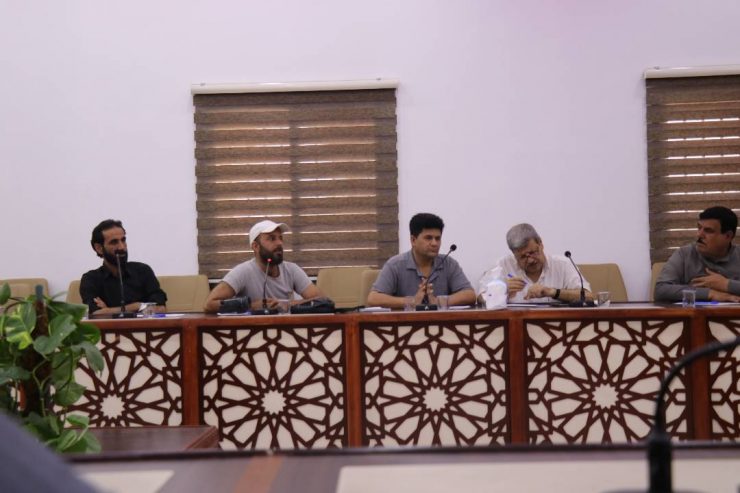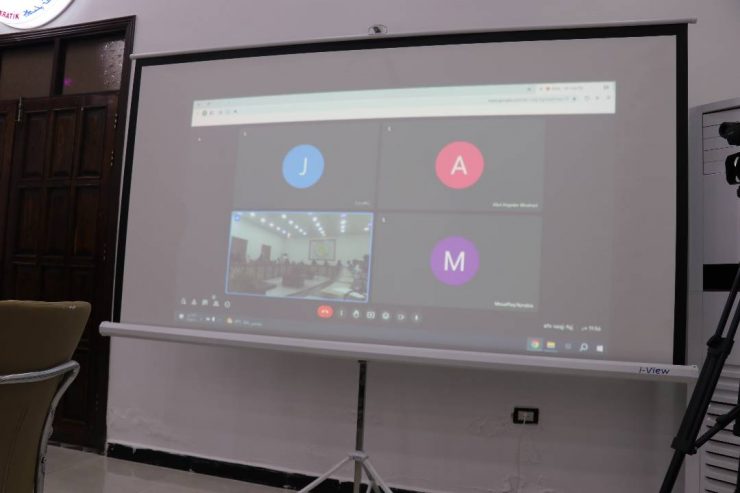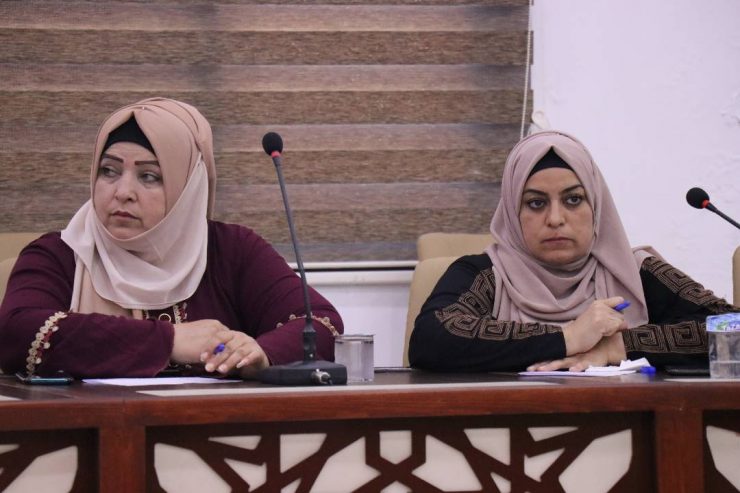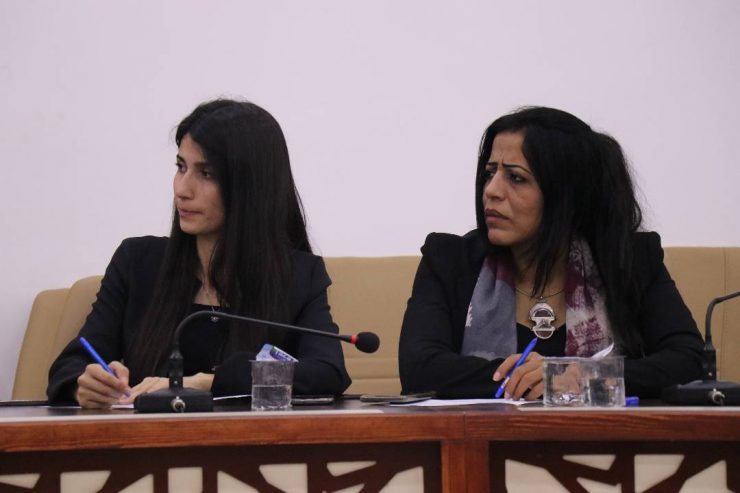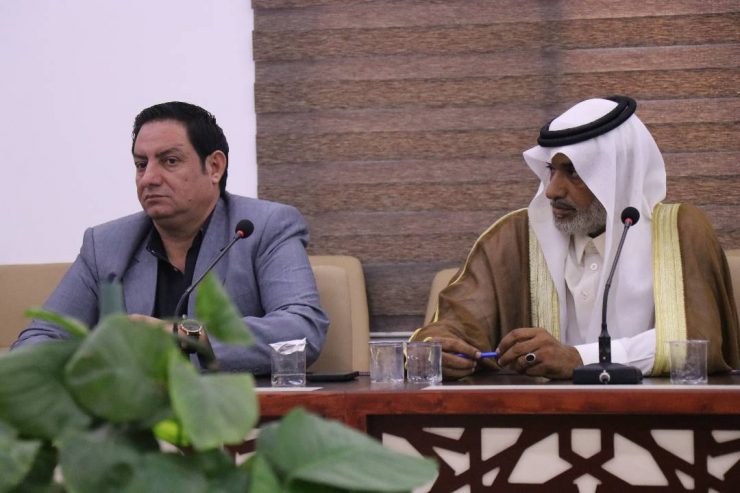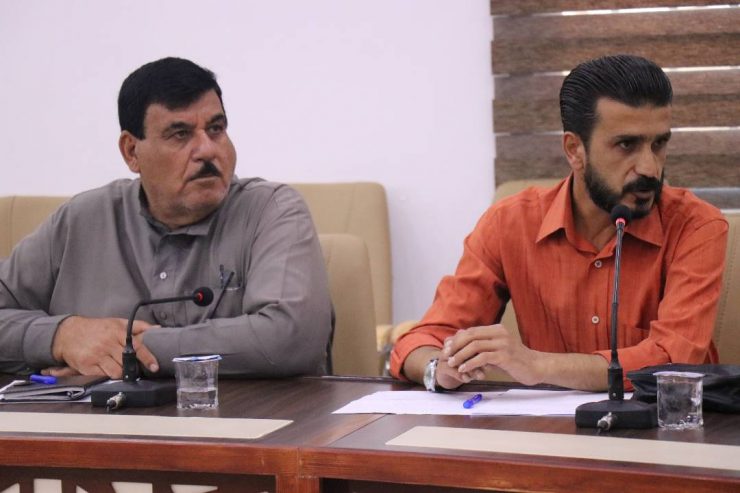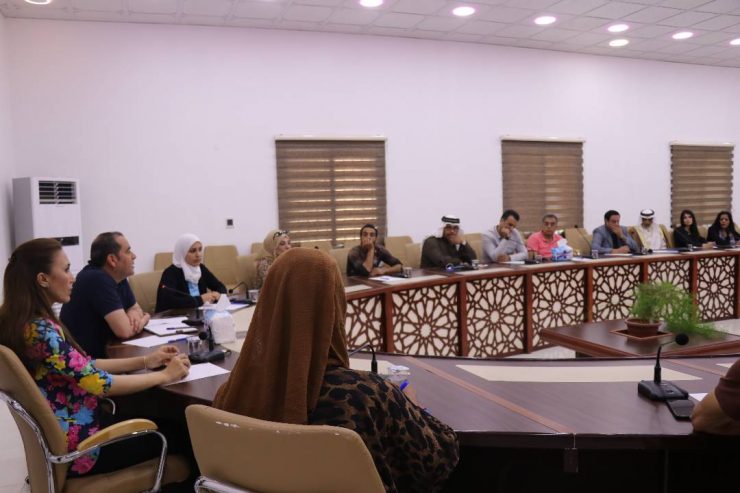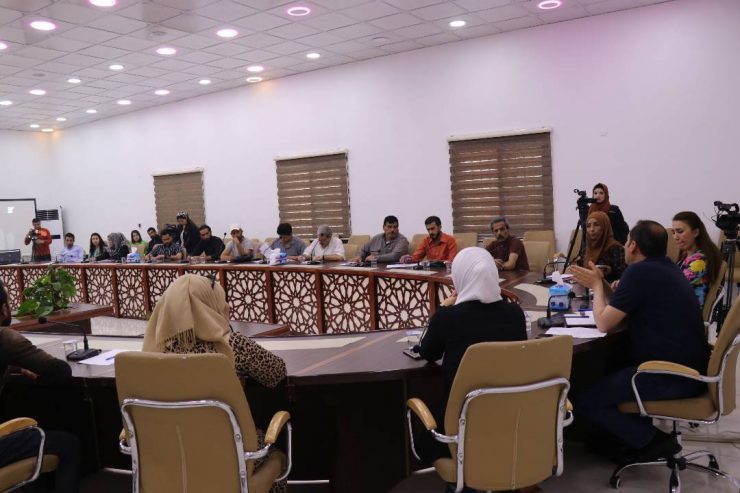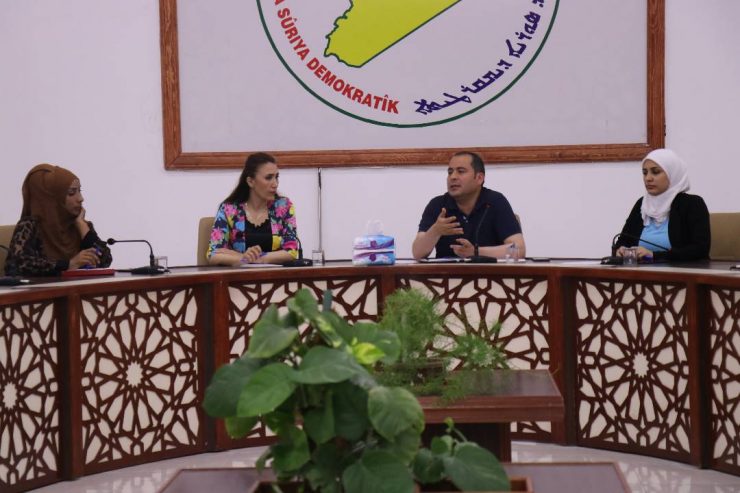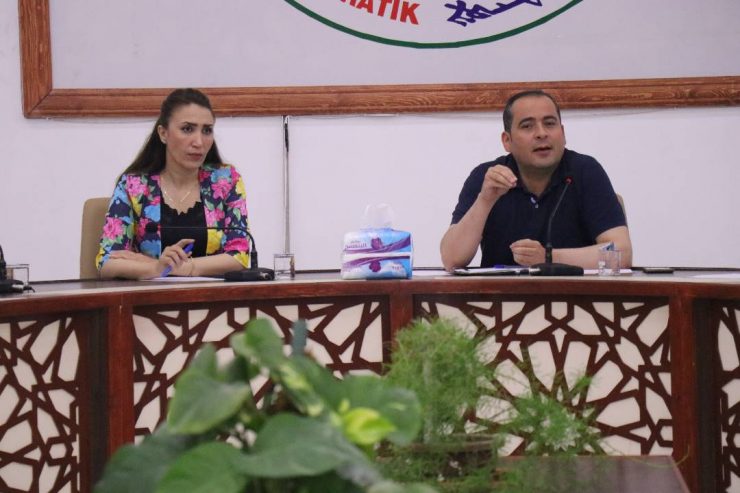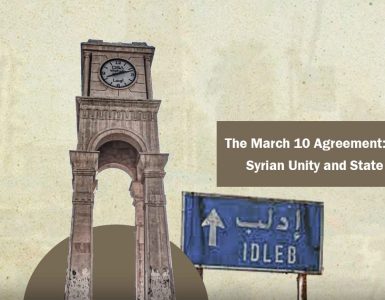The Syrian Democratic Council discussed the issue of Arab normalization, its beginnings, its path, and the position adopted by the SDC towards it. That took place during a dialogue seminar held on Thursday at the SDC meeting hall in Raqqa, with the participation of intellectuals, politicians, activists, representatives of political parties, as well as representatives of Women’s Organizations and participants from outside Syria via video communication technology.
Dr. Ghassan Al-Youssef, a member of the Executive Body of the Syrian Democratic Council, talked about the international efforts that have been exerted to resolve the Syrian crisis, which has not yielded real results on the ground so far, given the dire economic situation in Syria, the fragmentation and instability, and the deepening the tragedy of Syrian people.
“We welcome the Arab role that has receded in the past to create the conditions for activating the political process in accordance with the decisions of the UN Security Council and the Resolution 2254. We call on Arab countries to support the opposition national powers, of which the Syrian Democratic Council is considered one of its most important components” Al-Youssef stated.
Abdul Rahman Al-Ahmad, the Co-chair of the Raqqa Intellectuals Union, viewed the behaviors adopted by the authorities in Damascus as discouraging, as the Syrian cause has become a bargaining chip. Al-Ahmad emphasized the importance of strengthening the internal front amidst general calls for the unity between eastern and western Euphrates.
Ahmed Al-Qaddur, a member of the Democratic Alliance Party, spoke about the preparations for the Arab normalization since 2018, based on the UN resolution, separated from the military solution that has proven to be a failure. He explained that the opposition’s performance has been below expectations, with the consequences of the earthquake and providing assistance for the affected Syrians being the latest of these preparations. Al-Qaddur classified the normalization process as a multi-possibility attempt.
Muhammed Ali Darwish, a political activist from Raqqa, stated that the political resolution requires the unity of all Syrians, considering the sacrifices, clarifications, and initiatives were provided by people of this region. He called on Arab countries to focus on the aspirations of the Syrians who still provide their sacrifices.
Abdul Rahman Al-Issa, a writer from the Raqqa Intellectuals Union, questioned why Syria’s return to the Arab League raises questions. He added that one reason for its return is the emergence of problems that have exceeded Syrian borders, including drug trafficking and the cause of refugees. He emphasized the ability of Arab countries to make the initiative and contribute to the Syrian resolution.
Ismail Al-Khaled, an editor at the Middle East Democratic magazine, summarized the Syrian file and the complexities it has faced, praising the efforts of the Syrian Democratic Council in social cohesion according to its latest projects, such as “the Political Salon”.
The civil activist Osama Abu Audey distinguished between the people and the authorities and was not optimistic about the Arab stance. He insisted that the Syrian revolution, which began twelve years ago, will not stop but will regain its initial course if Arab countries contribute to change the authority in Damascus.
In conclusion, Etimad Al-Ahmed, the spokeswoman for the Zenobiya Women’s Gathering, called on Arab countries to assist in resolving the Syrian crisis without complicating it, which necessitates Syrians to unite their efforts, sit at the dialogue table, remove obstacles, and end the occupations.


